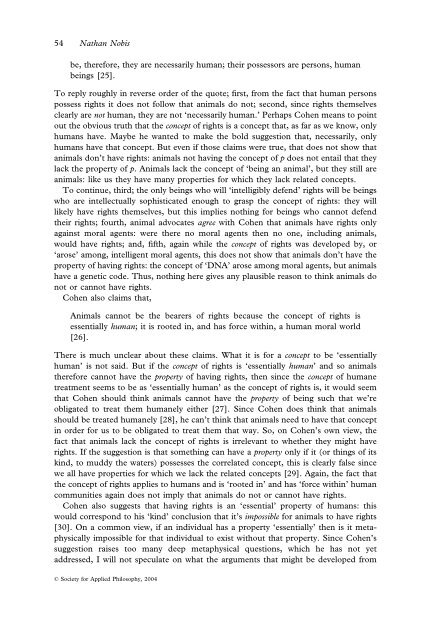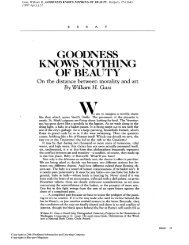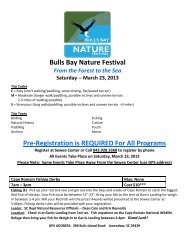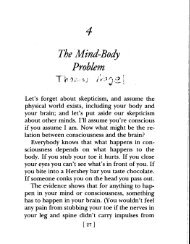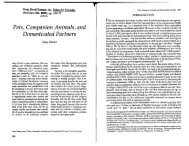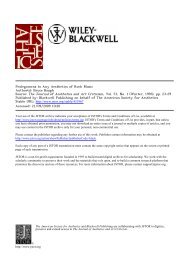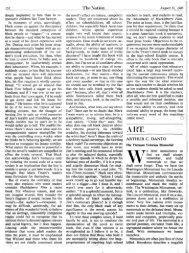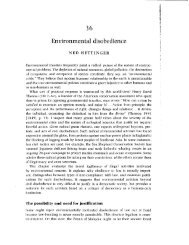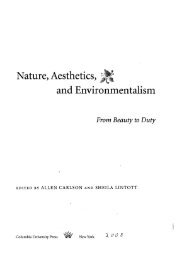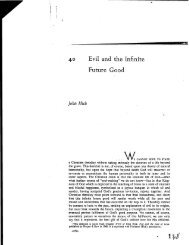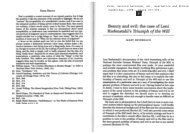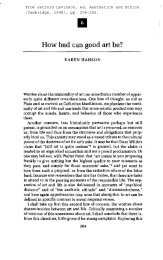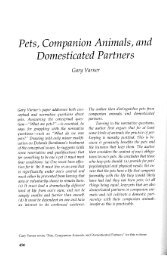Carl Cohen's 'Kind' Arguments For Animal Rights and Against ...
Carl Cohen's 'Kind' Arguments For Animal Rights and Against ...
Carl Cohen's 'Kind' Arguments For Animal Rights and Against ...
Create successful ePaper yourself
Turn your PDF publications into a flip-book with our unique Google optimized e-Paper software.
54 Nathan Nobisbe, therefore, they are necessarily human; their possessors are persons, humanbeings [25].To reply roughly in reverse order of the quote; first, from the fact that human personspossess rights it does not follow that animals do not; second, since rights themselvesclearly are not human, they are not ‘necessarily human.’ Perhaps Cohen means to pointout the obvious truth that the concept of rights is a concept that, as far as we know, onlyhumans have. Maybe he wanted to make the bold suggestion that, necessarily, onlyhumans have that concept. But even if those claims were true, that does not show thatanimals don’t have rights: animals not having the concept of p does not entail that theylack the property of p. <strong>Animal</strong>s lack the concept of ‘being an animal’, but they still areanimals: like us they have many properties for which they lack related concepts.To continue, third; the only beings who will ‘intelligibly defend’ rights will be beingswho are intellectually sophisticated enough to grasp the concept of rights: they willlikely have rights themselves, but this implies nothing for beings who cannot defendtheir rights; fourth, animal advocates agree with Cohen that animals have rights onlyagainst moral agents: were there no moral agents then no one, including animals,would have rights; <strong>and</strong>, fifth, again while the concept of rights was developed by, or‘arose’ among, intelligent moral agents, this does not show that animals don’t have theproperty of having rights: the concept of ‘DNA’ arose among moral agents, but animalshave a genetic code. Thus, nothing here gives any plausible reason to think animals donot or cannot have rights.Cohen also claims that,<strong>Animal</strong>s cannot be the bearers of rights because the concept of rights isessentially human; it is rooted in, <strong>and</strong> has force within, a human moral world[26].There is much unclear about these claims. What it is for a concept to be ‘essentiallyhuman’ is not said. But if the concept of rights is ‘essentially human’ <strong>and</strong> so animalstherefore cannot have the property of having rights, then since the concept of humanetreatment seems to be as ‘essentially human’ as the concept of rights is, it would seemthat Cohen should think animals cannot have the property of being such that we’reobligated to treat them humanely either [27]. Since Cohen does think that animalsshould be treated humanely [28], he can’t think that animals need to have that conceptin order for us to be obligated to treat them that way. So, on Cohen’s own view, thefact that animals lack the concept of rights is irrelevant to whether they might haverights. If the suggestion is that something can have a property only if it (or things of itskind, to muddy the waters) possesses the correlated concept, this is clearly false sincewe all have properties for which we lack the related concepts [29]. Again, the fact thatthe concept of rights applies to humans <strong>and</strong> is ‘rooted in’ <strong>and</strong> has ‘force within’ humancommunities again does not imply that animals do not or cannot have rights.Cohen also suggests that having rights is an ‘essential’ property of humans: thiswould correspond to his ‘kind’ conclusion that it’s impossible for animals to have rights[30]. On a common view, if an individual has a property ‘essentially’ then is it metaphysicallyimpossible for that individual to exist without that property. Since Cohen’ssuggestion raises too many deep metaphysical questions, which he has not yetaddressed, I will not speculate on what the arguments that might be developed from© Society for Applied Philosophy, 2004


